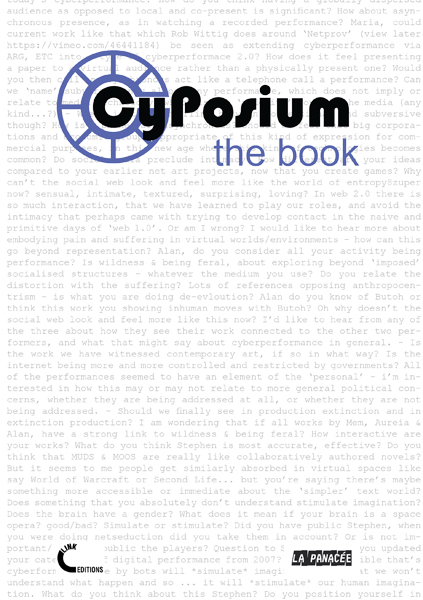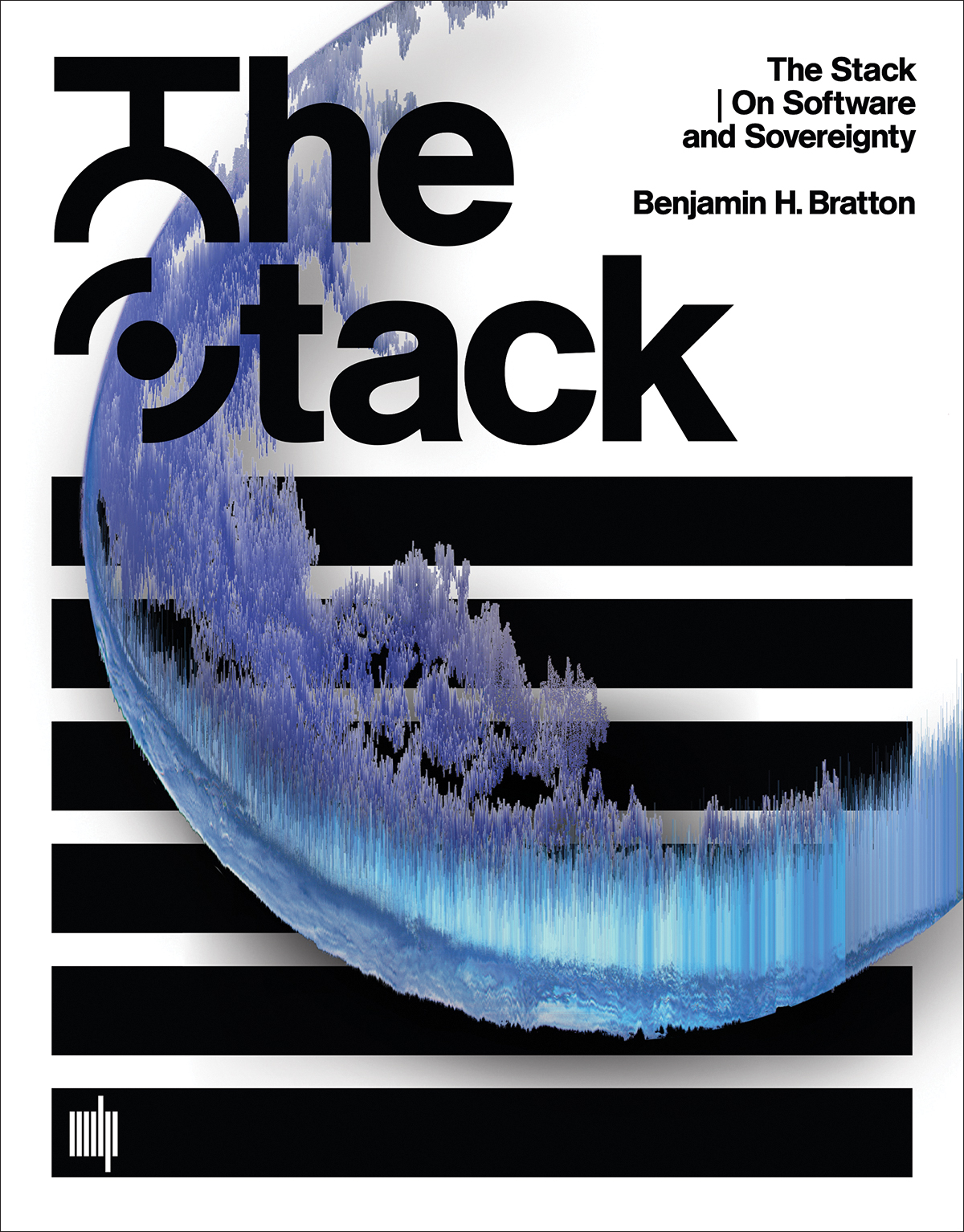Annie Abrahams, Helen Varley Jamieson (eds.): CyPosium: The Book (2014)
Filed under book | Tags: · art, internet, performance, performance art, theatre

“In October 2012, a one-day online symposium created a platform for discussing the practice of cyberformance – live performance that uses internet technologies to connect remote participants. The 12-hour event featured 10 presentations and attracted an audience of over 100 from around the world who engaged in a lively, vibrant conversation. CyPosium – The Book presents a selection of artefacts from the CyPosium – presentation texts, chat log excerpts, discussion transcripts, edited email conversations, creative chat excerpt essays and illustrations – along with invited articles that respond to the event. The contributors hail from a wide range of artistic practice both online and offline, and their writing illustrates the hybridity of contemporary arts involving digital technologies.”
Contributors: Adriene Jenik, Alan Sondheim, Alberto Vazquez, Annie Abrahams, Auriea Harvey and Michaël Samyn, Cherry Truluck, Clara Gomes, Helen Varley Jamieson, James Cunningham, Joseph DeLappe, Liz Bryce, Maria Chatzichristodoulou, Maja Delak and Luka Prinčič, Miljana Perić, Rob Myers, Roger Mills, Ruth Catlow, Stephen A. Schrum and Suzon Fuks.
Publisher Link Editions, Brescia, with La Panacée, Centre de Culture Contemporaine, Montpellier, 2014
Creative Commons BY-NC-SA 4.0 International License
ISBN 9781291988925
171 pages
Invisible Places, Sounding Cities: Sound, Urbanism and Sense of Place (2014)
Filed under proceedings | Tags: · architecture, art, city, place, public art, sound, sound art, sound studies, urbanism

“Our proposal is to increase awareness of the importance of our local and global soundscapes and our role in their experience and design. As listeners, we are also responsible for the shape and beauty of our own soundscape. Therefore, we must open our ears.”
Proceedings from the symposium and exhibition created as part of the 4th edition of Jardins Efémeros (Ephemeral Gardens) festival in Viseu, Portugal, and consisting of 54 paper presentations, 11 artist talks and 54 audioworks.
Edited by Raquel Castro and Miguel Carvalhais
Publisher Jardins Efémeros, Viseu
ISBN 9789897460487
808 pages
Benjamin H. Bratton: The Stack: On Software and Sovereignty (2016)
Filed under book | Tags: · architecture, automation, city, cloud computing, computation, earth, geopolitics, infrastructure, interface, internet of things, software, software studies, technology, theory

“What has planetary-scale computation done to our geopolitical realities? It takes different forms at different scales—from energy and mineral sourcing and subterranean cloud infrastructure to urban software and massive universal addressing systems; from interfaces drawn by the augmentation of the hand and eye to users identified by self—quantification and the arrival of legions of sensors, algorithms, and robots. Together, how do these distort and deform modern political geographies and produce new territories in their own image?
In The Stack, Benjamin Bratton proposes that these different genres of computation—smart grids, cloud platforms, mobile apps, smart cities, the Internet of Things, automation—can be seen not as so many species evolving on their own, but as forming a coherent whole: an accidental megastructure called The Stack that is both a computational apparatus and a new governing architecture. We are inside The Stack and it is inside of us.
In an account that is both theoretical and technical, drawing on political philosophy, architectural theory, and software studies, Bratton explores six layers of The Stack: Earth, Cloud, City, Address, Interface, User. Each is mapped on its own terms and understood as a component within the larger whole built from hard and soft systems intermingling—not only computational forms but also social, human, and physical forces. This model, informed by the logic of the multilayered structure of protocol “stacks,” in which network technologies operate within a modular and vertical order, offers a comprehensive image of our emerging infrastructure and a platform for its ongoing reinvention.
The Stack is an interdisciplinary design brief for a new geopolitics that works with and for planetary-scale computation. Interweaving the continental, urban, and perceptual scales, it shows how we can better build, dwell within, communicate with, and govern our worlds.”
Publisher MIT Press, 2016
Software Studies series
ISBN 9780262029575, 026202957X
xx+502 pages
Reviews: Mercedes Bunz (Media Culture Society, 2016), Roger Whitson (2016), Marc Tuters (Computational Culture, 2017).
Commentary: McKenzie Wark (Public Seminar, 2016), Lukáš Likavčan (Hong Kong Review of Books, 2017; Artalk, CZ).

